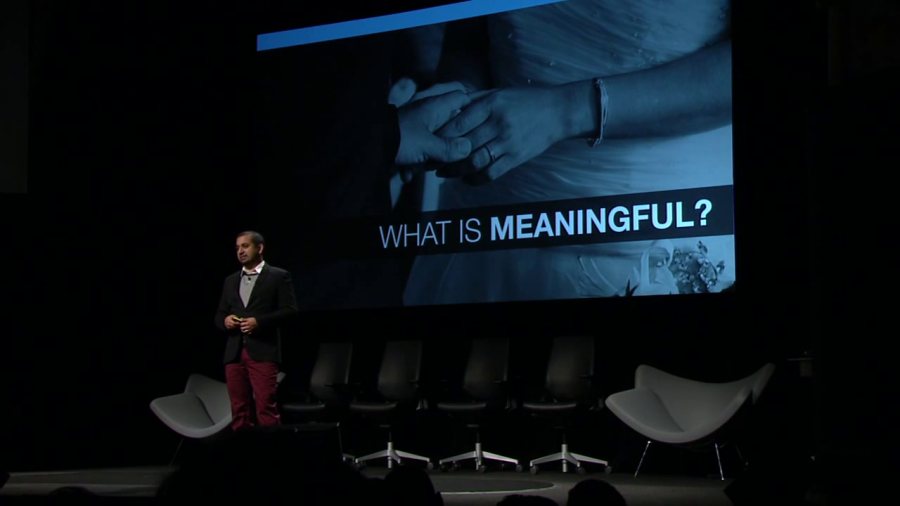I’m glad those social networks provide those services. I think it’s important for the dialogue to happen that way. But it can’t be the only way for us to have public discourse. Online, we only have these spaces that are owned by private companies. We don’t have public parks.
PopTech 2014: Rebellion

Holding To Account
presented by Anil Dash

Maria Popova with John Maeda at PopTech 2014
presented by John Maeda, Maria Popova
I think reading and writing are really two forms of the same act, which is a discourse with one’s own mind, and ideally a discourse with another mind. As a reader it’s the author’s, and as a writer it’s the reader’s, you know. But the two sort of feed into each other, and for me writing is just and record of my own becoming.

Our Faces
presented by Sharrona Pearl
The French philosopher Immanuel Levinas has taught us that it is through our interactions with the face of somebody else, it is through encountering the face of another, that our responsibilities to someone else arise. You cannot look at somebody else, truly look at them, and then walk away without having some kind of sense of a relationship towards that person. But what if the other has no face? What then? Or what if the face of the other is actually the face of another person entirely?

Slow Rebellion
presented by Erin McKean
If we think that the rebellion changes the world, does it really matter what the time scale is? It doesn’t have to be an overnight overthrow. It can be the steady remaking of the world through pure force of conviction, like water wearing away stone. We have slow food, we have slow fashion, why can’t we have slow rebellion?
